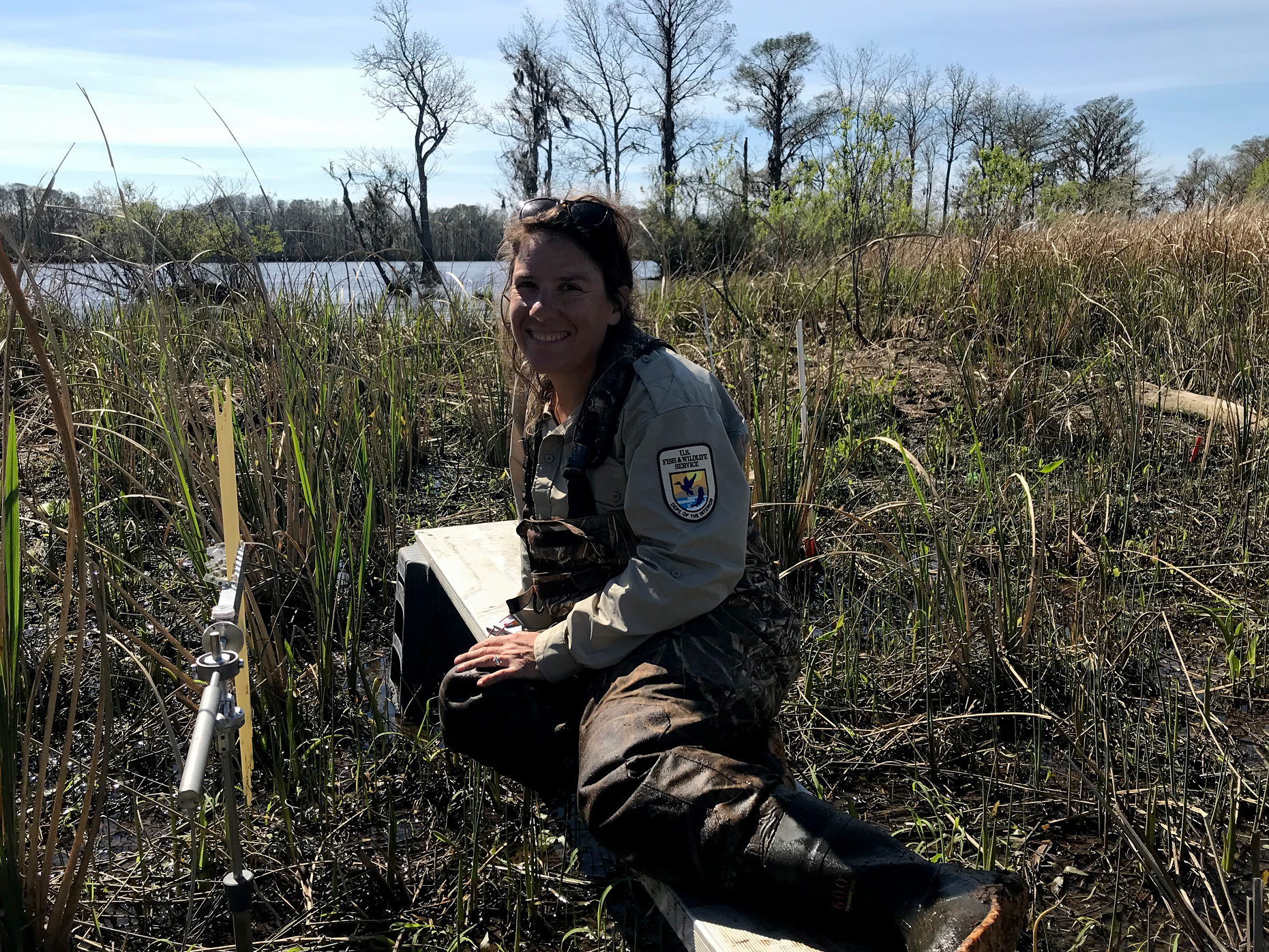Will the marsh stay or will it go? September 16th webinar co-hosted with Southeast Climate Adaptation Science Center

Webinar details
- Title: Will the marsh stay or will it go? Coastal wetland transformations in the South Atlantic Basin
- Speakers: Michelle Moorman, U.S. Fish and Wildlife Service (U.S. FWS)
- Date: Thursday, September 16th
- Time: 10:00 am Eastern
- Connection information: Register for the webinar via Zoom (Note - advance registration is available but not required; if you register at the time of the webinar, you will join the meeting automatically)
The September South Atlantic Third Thursday Web Forum will be co-hosted with the Southeast Climate Adaptation Science Center. Michelle Moorman will present on coastal wetland transformation along the South Atlantic coast. Coastal wetland ecosystems provide critical habitat for many species, and they deliver important ecological functions. Two recognized threats to coastal wetland stability and the wildlife that depend on these ecosystems are the projected acceleration of rates of sea-level rise (SLR) and/or wetland subsidence. Uncertainty over the future of our coastal wetlands, particularly when considering static SLR inundation models, has motivated the U.S. FWS National Wildlife Refuge (NWR) System to undertake systematic monitoring of coastal wetlands in NWRs across the country to determine if they will be resilient to SLR or undergo an ecological transformation. This will provide one piece of critical information needed to identify management actions needed to resist, accept or direct ecological transformations of coastal wetlands in the NWR system (Ezer and Atkinson 2014; Beckett et al. 2016).
The Coastal Wetland Elevation Monitoring (CWEM) Program has monitored site-specific surface elevation and accretion trends for priority coastal wetland habitats on NWR across the South Atlantic Basin since 2012. We have determined rates of wetland elevation change and compared them to NOAA estimates of sea level rise across four coastal habitat types: oligohaline marshes, salt marshes, forested wetlands, and pocosin wetlands. In the long run, this effort will improve our understanding of processes that may be contributing to the resilience or lack thereof within each coastal wetland type. Results also will help managers make ecologically informed decisions with respect to conservation and management on refuges, such as whether restoration or transformative actions should be considered for implementation.
A recording will be posted afterwards to the calendar event on the South Atlantic website, if you’re unable to make the webinar.